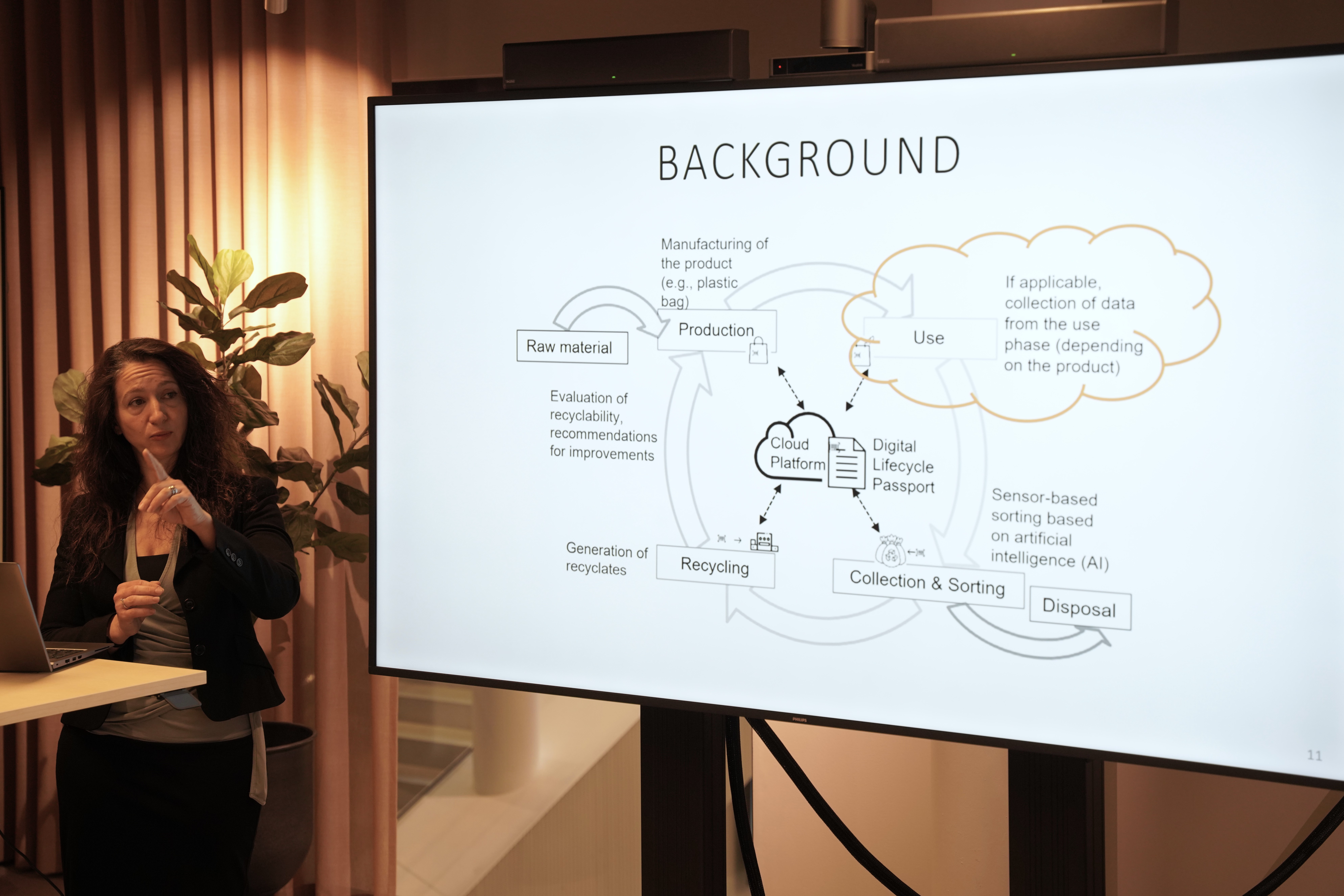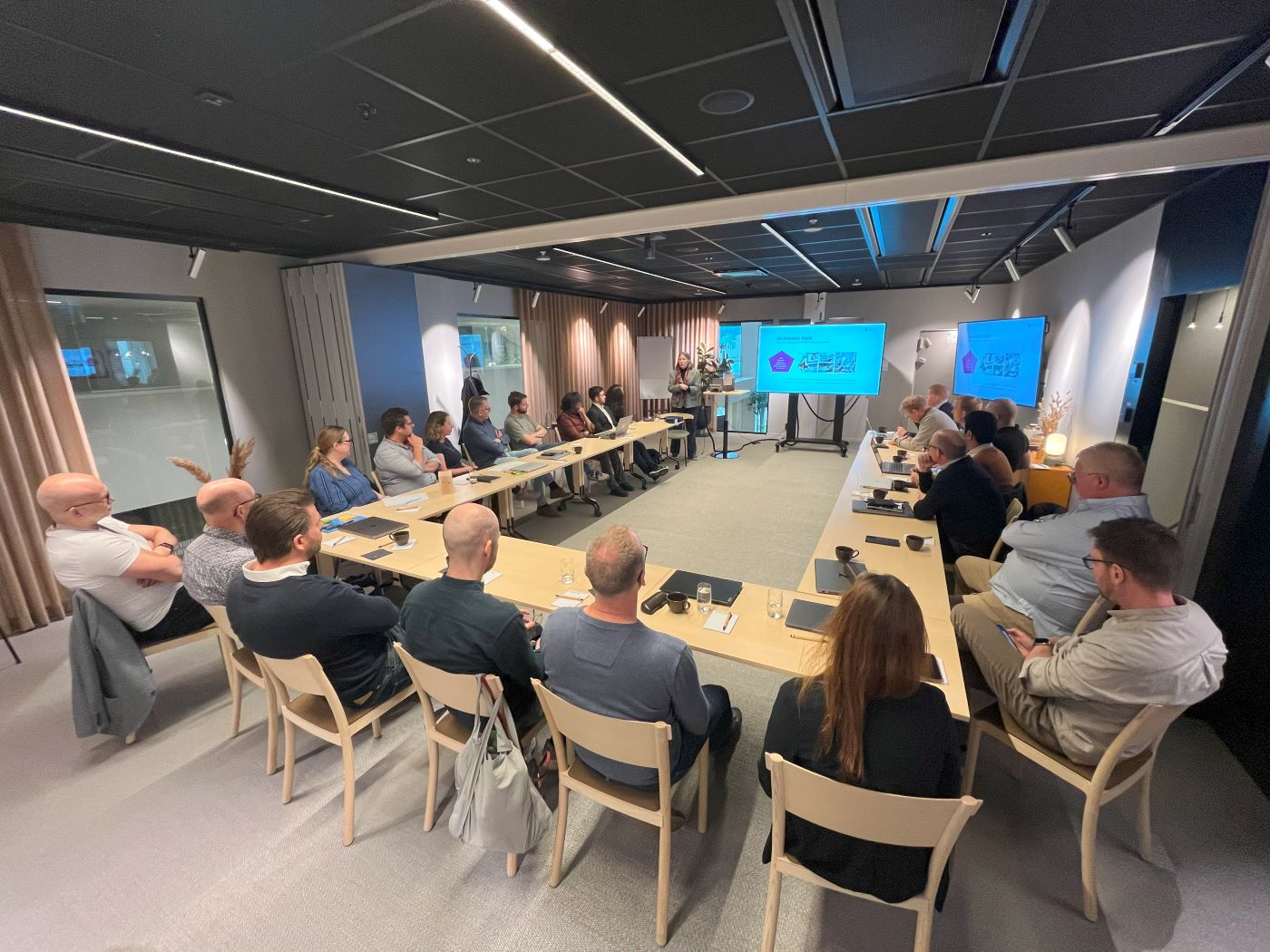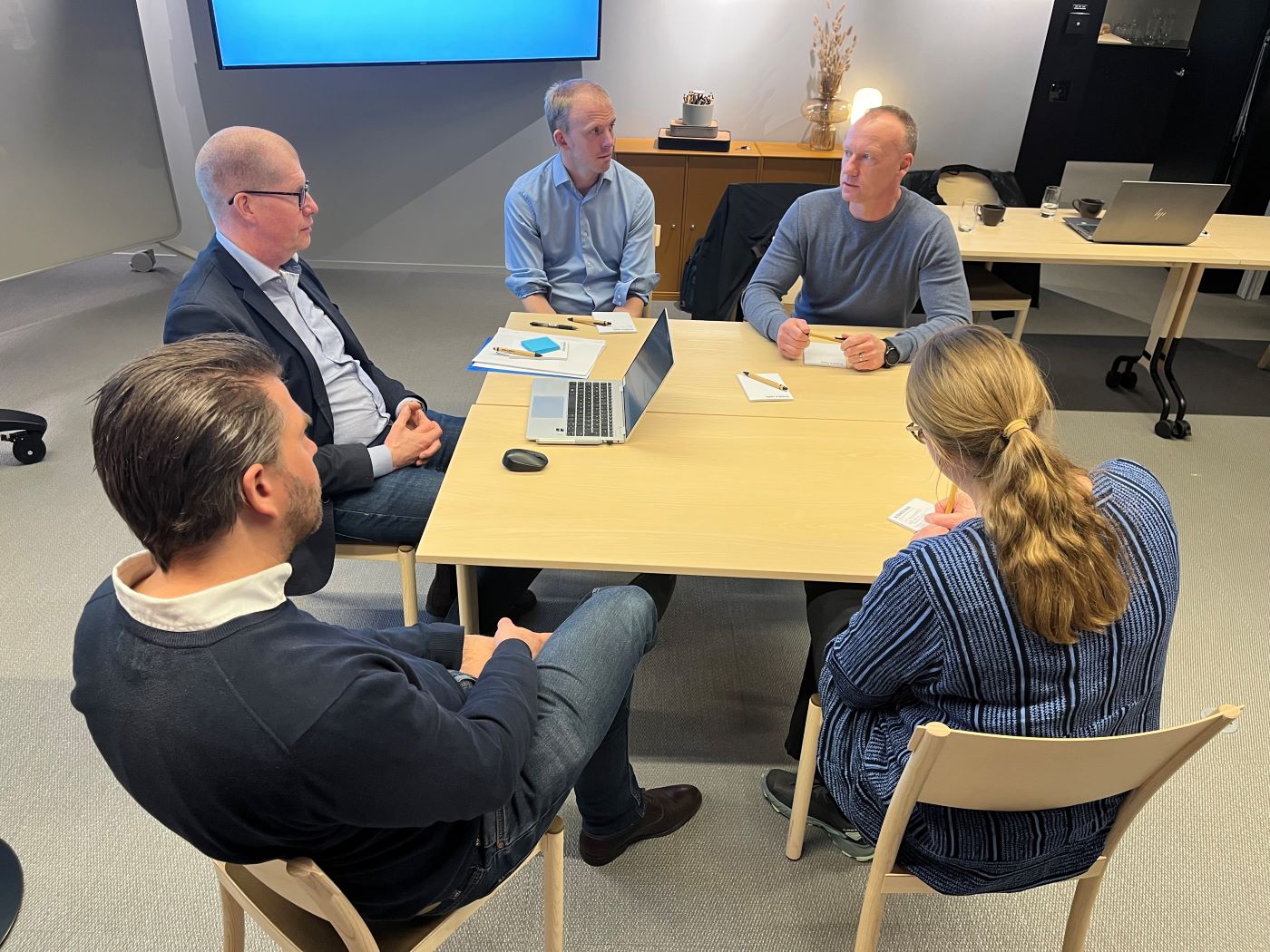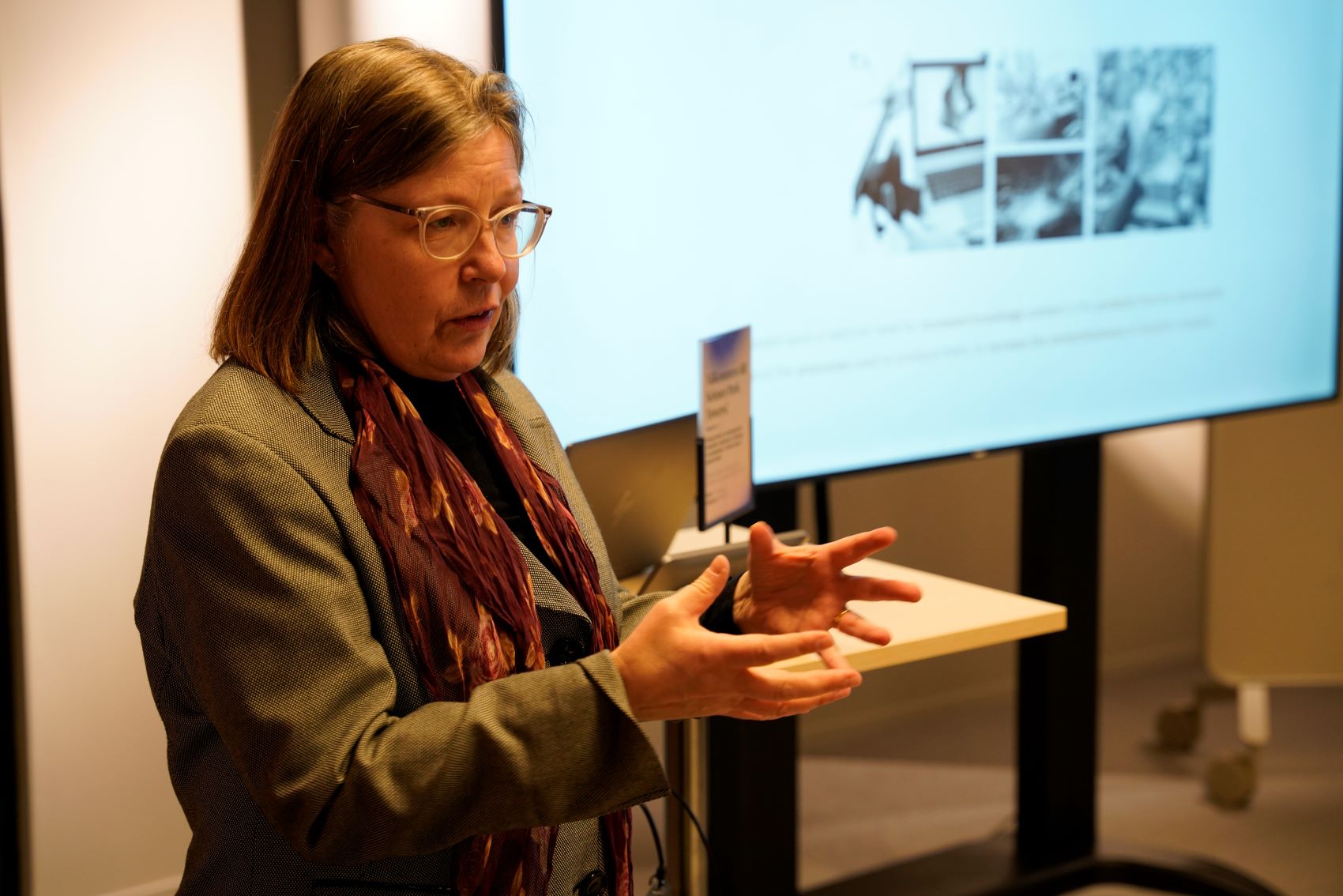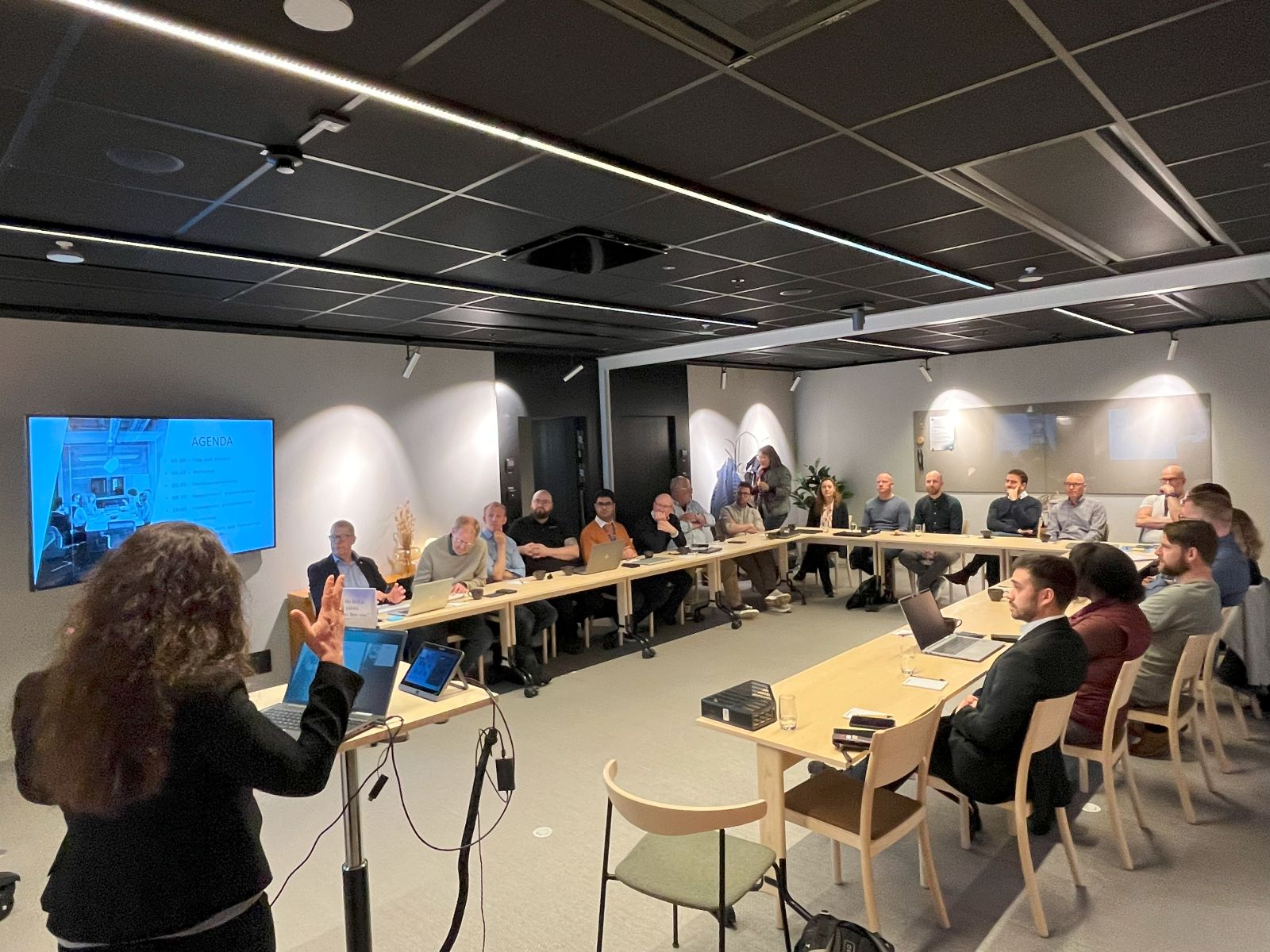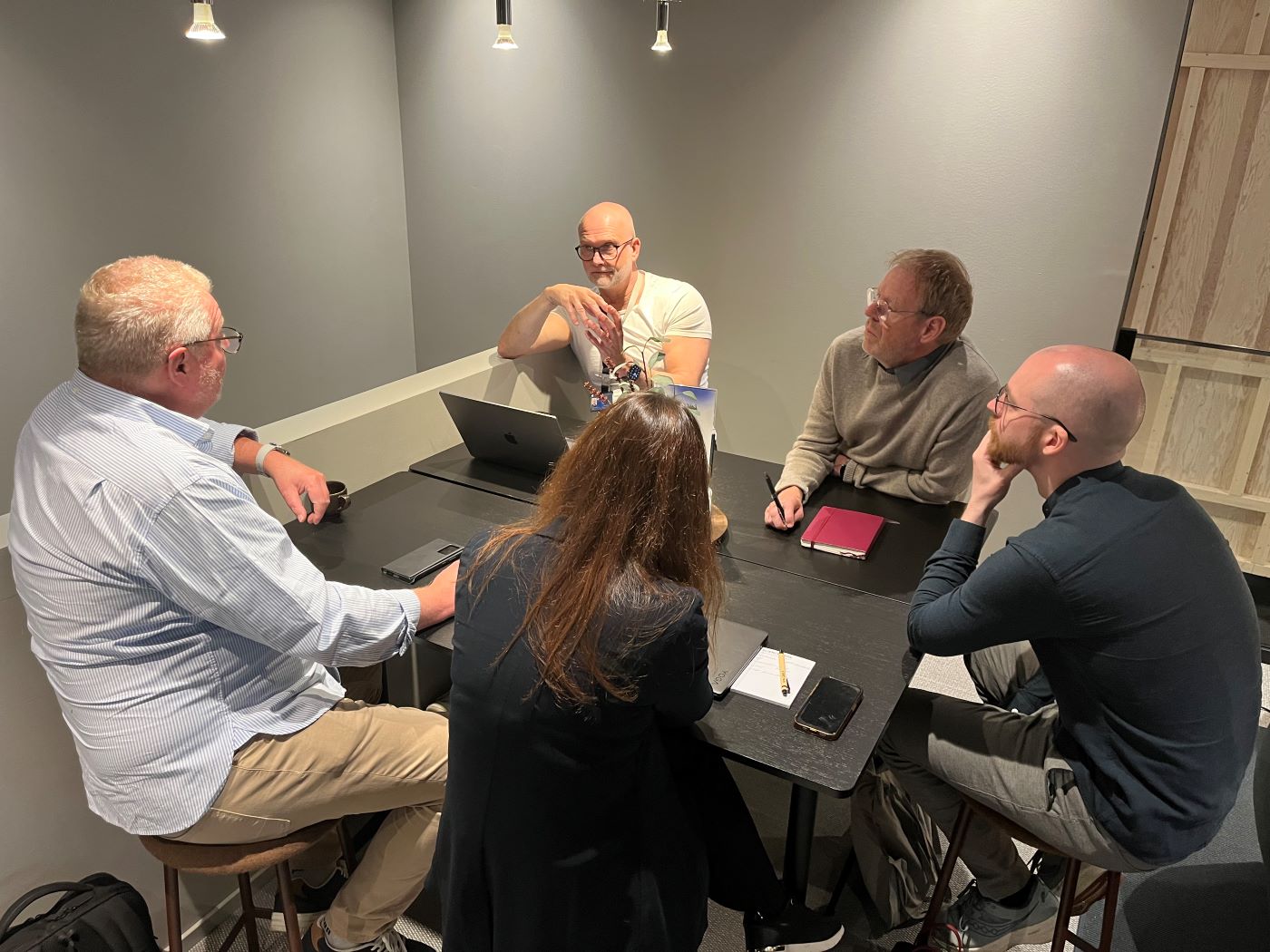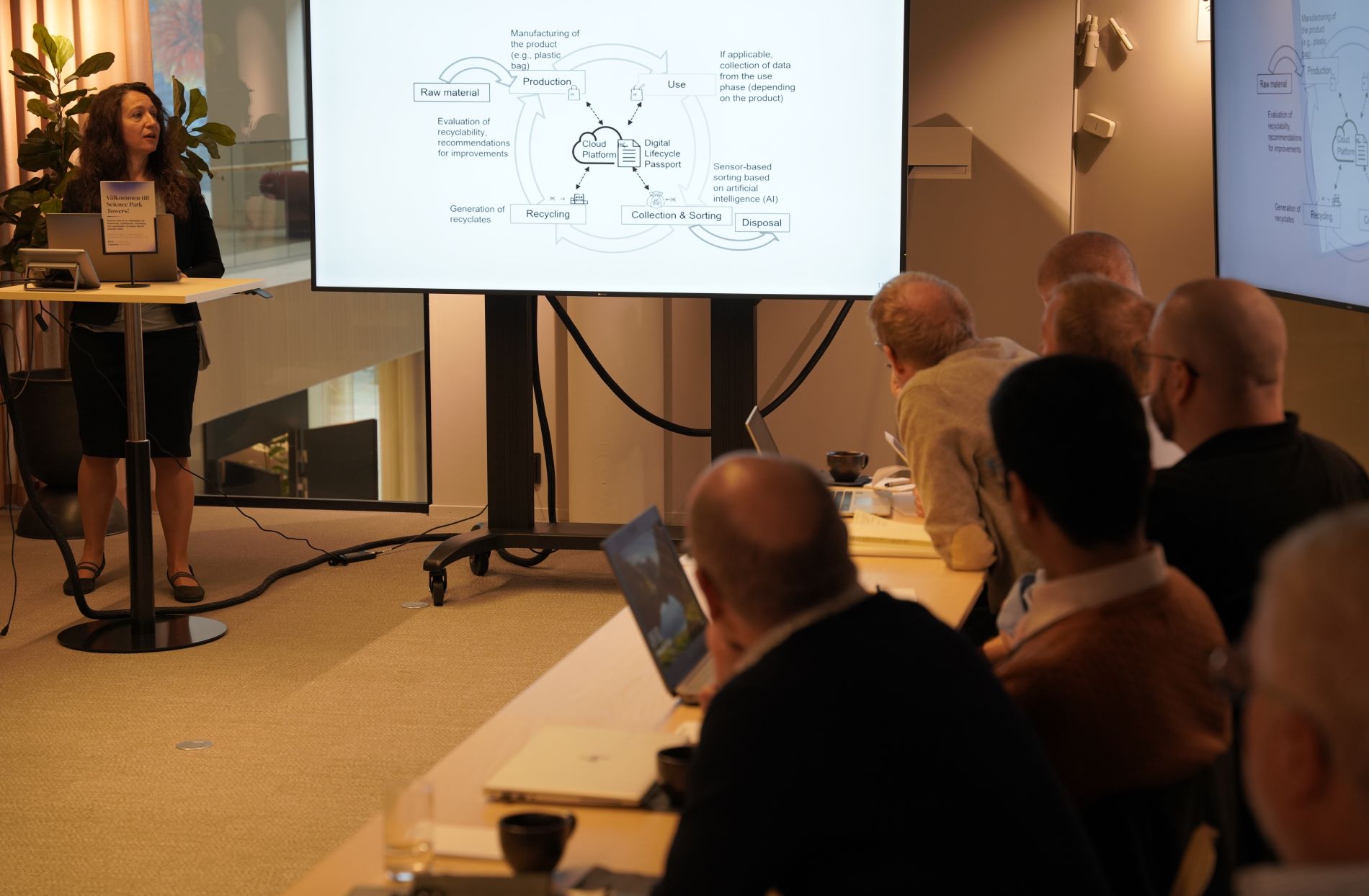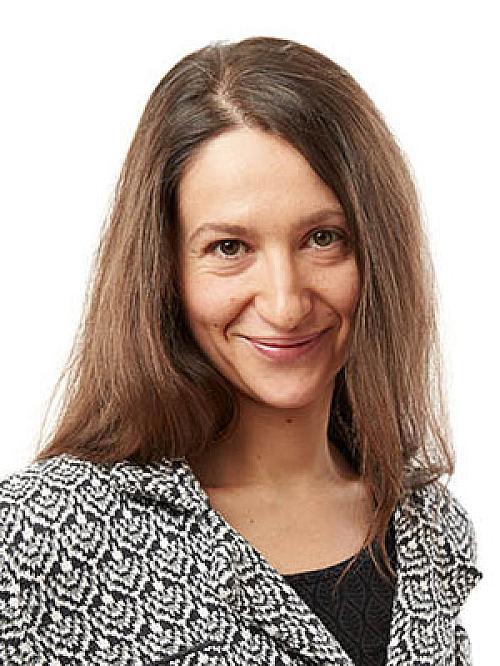
Digital Product Passports (DPP) store data on, among other things, the sustainability of products throughout their life cycle. DPP is still under development. This is an AI-generated image from Chat GPT.
Research on digital product passports together with companies
Digital Product Passport (DPP) is a mandatory tool developed by the EU where data on, among other things, the sustainability of a product is stored throughout its life cycle.
Researchers at the School of Engineering (JTH), Jönköping University (JU) will work with companies to develop digital tools to support the introduction of DPP at companies.
"It will be an extremely important and extensive process for manufacturing companies in the coming years," says Annika Moscati, project manager for Pass4Sustainability and associate professor at JTH.
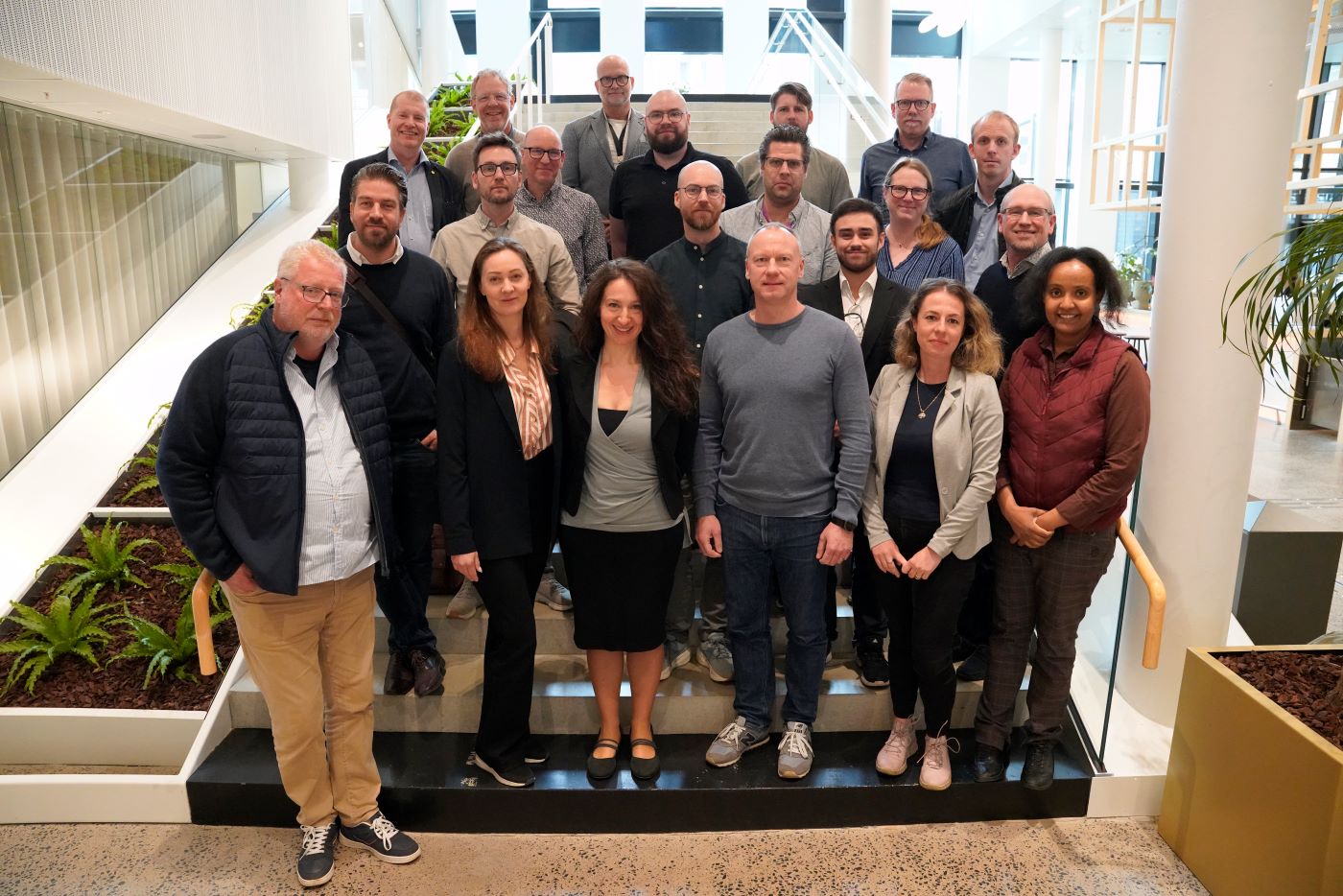
The School of Engineering (JTH) at Jönköping University (JU) held a kick-off event for the Pass4Sustainability research project on digital product passports on 23 April. The event was held in Science Park Towers in Jönköping.
In the coming years, almost everything sold in the EU may need a Digital Product Passport (DPP), which shows different types of data linked to different phases of the product life cycle. For example, it shows the materials used in the products and their environmental impact.
In addition to creating the conditions for implementation of DPP, the Pass4Sustainability research team at JTH will also help companies with information management and cybersecurity linked to DPP.
"Great interest from companies"
Pass4Sustainability focuses mainly on the use phase of the product life cycle and explores the opportunities and challenges that DPP brings in terms of product development and production as well as reuse, refurbishment and end-of-life management.
"There has been a lot of interest from companies about DPP, and it is still possible to join the project," says Annika Moscati.
The partner companies to Pass4Sustainability are Fagerhults Belysning, Informationsbyggarna, Nordan, Nilörn, ISO Timber and Chemity. One more company has joined the project, and their contribution will be formalized shortly.
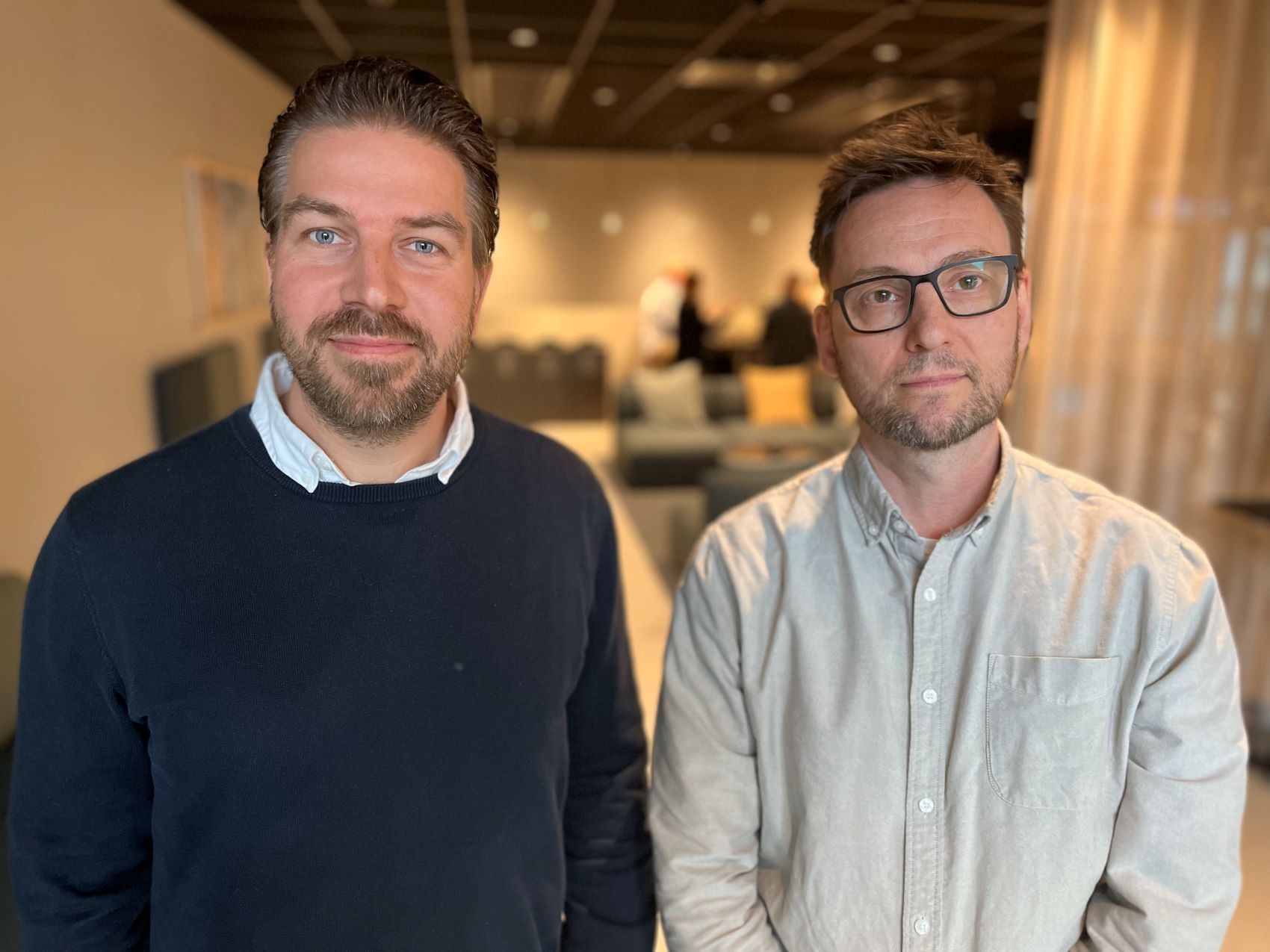
Tobias Andersson, responsible for Product Data Management at Fagerhults Belysning, and Jan-Mikael Kristiansson, CEO of Informationsbyggarna, believe that Pass4Sustainability will provide synergies for the project participants.
"Important research"
Tobias Andersson, responsible for Product Data Management at Fagerhults Belysning, says that they are participating in Pass4Sustainability to gain a better understanding of what requirements and needs will be placed on them as a supplier of products from the European market.
"We want to see DPP not just as a legal requirement, but something we can use for further sales of our products. We work closely with JU and it is of great importance that research is conducted in this area, says Tobias Andersson.
"Valuable contact exchanges"
Jan-Mikael Kristiansson, CEO of Informationsbyggarna, mentions that they handle large amounts of information from their customers. He believes that digital product passports will help them sort and manage that data in a more rational way. He has high expectations for Pass4Sustainability.
"I think it will be great! It's great that it has started and that so many companies in different sectors are participating in the project. There are valuable exchanges of contacts and we will learn a lot from each other, says Jan-Mikael Kristiansson.
Pass4Sustainability started on April 1 this year and will run for 3.5 years.
Facts
Pass4Sustainability includes three subprojects, each addressing a key aspect of Digital Product Passport (DPP) implementation and usage. These are:
InLifeData focuses on strategies for managing products at the end of their lifecycle;
CCArch explores a cybersecurity-centered DPP architecture;
UsePass will explore how to use the data incorporated in the DPPs to drive the development of sustainable products and production systems during product realization.
The Pass4Sustainability research team consists of: Annika Moscati, project manager, Ulf Seigerroth, project manager CCArch, Peter Johansson, project manager InLifeData, Paraskeva Wlazlak, project manager UsePass, Rahel Kebede, Andreas Briggert, Habib Sadri, Erik Bergström, Joakim Kävrestad, Roland Stolt and Linus Sönnerhed.
- Associate Professor ICT-BIM in building
- School of Engineering
- annika.moscati@ju.se
- +46 36-10 1565



